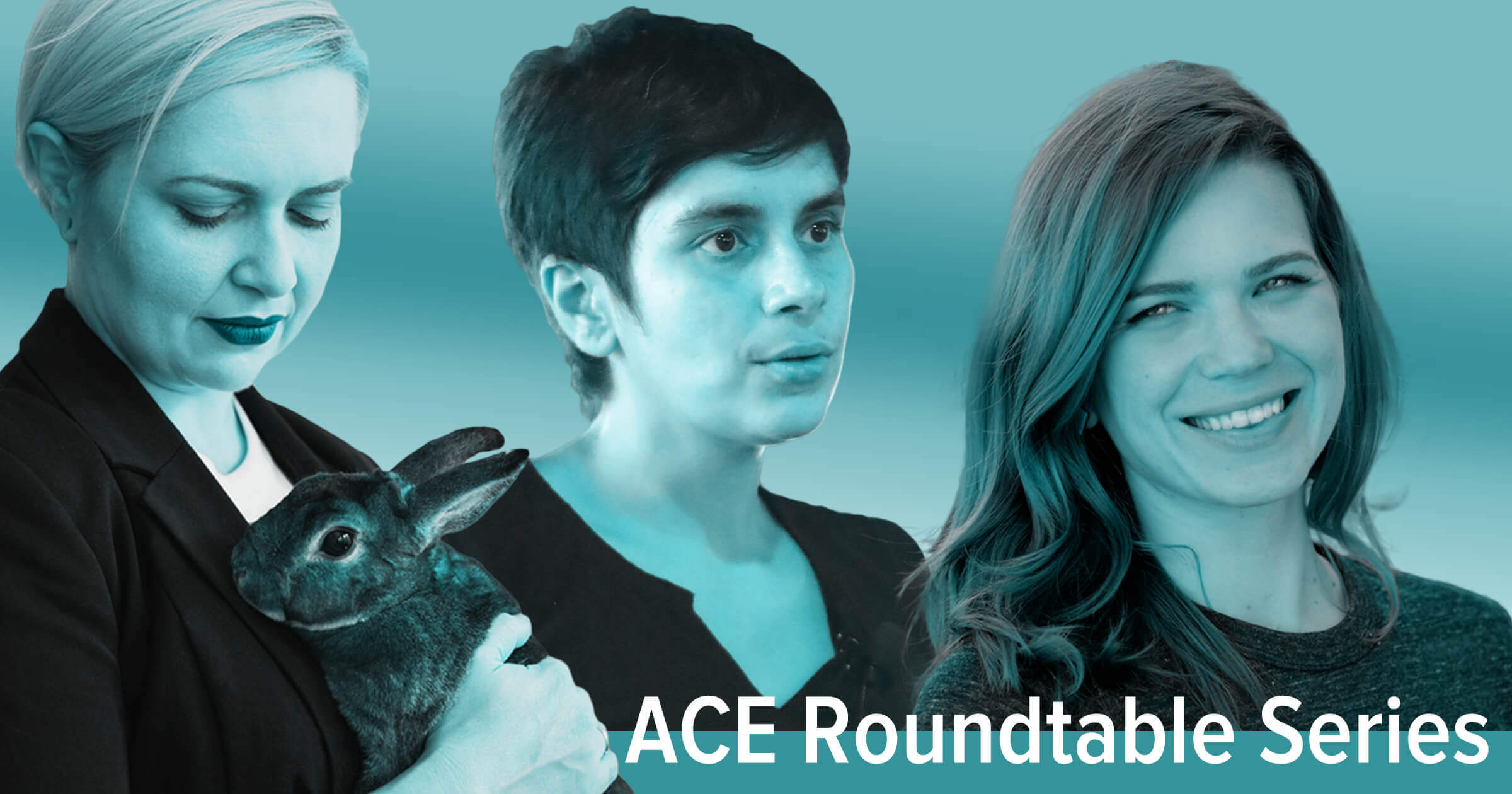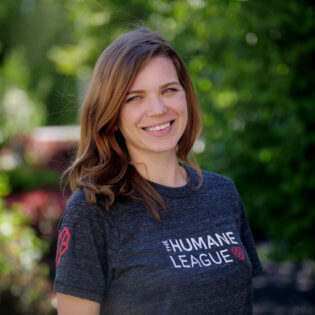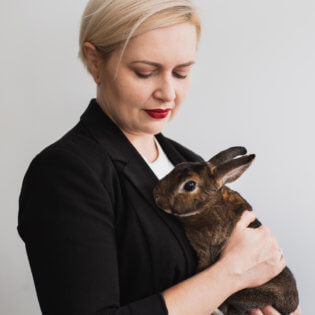
Roundtable: How Can Organizations Responsibly Expand Internationally?
In our roundtable blog series, we ask a handful of contributors to provide their points of view on complex topics or unsettled questions. We hope that this approach will help us to integrate and learn from multiple perspectives on animal advocacy.
Introduction
In order to reduce animal suffering on a global scale, it’s important for animal advocates to understand local contexts and consider how linguistic, social, political, economic, and cultural factors can pose challenges and opportunities for effective animal advocacy (EAA). We believe that animal advocacy organizations should carefully consider all of these factors when expanding internationally.
We hope that this roundtable will be a valuable resource for organizations planning on or currently expanding their operations internationally, as well as advocates seeking a nuanced understanding of local contexts.
We asked some informed leaders from different regions to share their insights regarding how organizations can responsibly expand internationally. We’d like to thank the following people for contributing to this post:
- Cristina Diniz, Open Wing Alliance
- Dobrosława Gogłoza, Anima International
- Varda Mehrotra, Federation of Indian Animal Protection Organisations
- Anonymous Contributor, Asia
We’re grateful to each of our contributors for bringing their unique perspectives to this roundtable. Cristina Diniz has experience organizing local volunteers as the Grassroots Coordinator in São Paulo, Brazil for Mercy For Animals. She now works to expand the Open Wing Alliance’s presence in Latin America by empowering local groups to coordinate regional campaigns. Dobrosława Gogłoza is the Chief Executive Director at Anima International. She is also the Co-Founder and former President of Otwarte Klatki (Open Cages), an organization in Central Eastern Europe focused on investigations and public outreach. Varda Mehrotra is the Executive Director of the Federation of Indian Animal Protection Organisations (FIAPO), an organization focused on reducing the suffering of farmed animals and building the EAA movement in India. She has extensive experience working with activists and organizations in both India and Scotland. One of our contributors prefers to remain anonymous. Their work is informed by their experience localizing programs to assist charities within ACE’s network to reduce farmed animal suffering in Asia.
Please feel free to discuss our contributors’ thoughts—and share your own—in the comments!
Cristina Diniz

Latin America Coordinator for the Open Wing Alliance, The Humane League
Cristina Diniz is the Latin America Coordinator for the Open Wing Alliance at The Humane League and is based in São Paulo, Brazil. She holds a bachelor’s degree in international relations and a master’s degree in social innovation management. Before working in the animal advocacy movement, Cristina worked for six years with a global non-profit organization that focused on providing educational opportunities for young students in marginalized areas.
As a Brazilian who has lived and worked in seven different countries—many times as the only Latin representative—I live and breathe the idea of respecting different backgrounds and learning from other cultures.
The Open Wing Alliance (OWA) brings organizations together to form a unified front focused on freeing egg-laying hens from cages and ending the abuse of farmed chickens worldwide by sharing campaign tactics, resources, and more. The OWA has given over $1.3 million USD in grants to nearly 27 local organizations in 27 different countries over the past three years. Because of our granting program, for the first time ever, countries like Ecuador, Peru, and Chile, to name just a few, are able to have strong national representatives working to defend abused animals.
My favorite aspect of the coalition is the multicultural environment that must be considered in every step that we take. The Open Wing Alliance has 80 member organizations from 62 different countries that speak over 40 different languages. Working with organizations in dozens of different linguistic, political, juridical, and economic scenarios means that we can’t always accept a one-size-fits-all strategy.
As the first OWA Regional Coordinator, one of my goals is to unify the movement in Latin America and test the model for having one person focused and working in just one region. Here’s a summary of the most important lessons I’ve learned so far:
Provide resources and conduct conversations in local languages
The OWA hosted the Latin America Regional Summits and other trainings in Spanish and Portuguese (or a mix of both). By hosting events in which participants can speak their native language, we are creating space for voices that otherwise, we would never hear from; these are the voices that are doing groundbreaking work for hens in developing countries. Keep in mind that in Latin America, less than eight percent of the population speaks English well enough to understand a few sentences.
The strongest activists might not always be proficient in English, and this should be okay. The feedback that we’ve received from past conferences and webinars held in Spanish and/or Portuguese is that speaking one’s native language is incredibly valuable and helpful, especially when discussing strategies or making decisions. Another helpful approach is to try to translate every possible resource—sometimes these translations are made by the local groups themselves. However, not everything is translatable.
The effectiveness of tactics differs between cultural contexts
Empathy isn’t translatable. What works in the United States won’t necessarily work everywhere else. For instance, in regions where some people live under a dollar per day, there is a certain risk of being ridiculed for asking for more compassion for confined hens.
Cultures will be moved or touched in different ways by different initiatives. In parts of Latin America and Asia, aggressive pressure campaigns are not always the most effective approach, and sometimes they are even forbidden. At the last OWA Latin America Summit in São Paulo, we discussed the idea that “undeveloped countries have too many social issues to worry about animals.” In other words, in some regions, the income rate is so low that human beings are not capable of absorbing or dealing with more problems.
During this discussion, some groups shared their approaches to this concern:
- When running awareness campaigns, we found that it’s best to opt for positive images, avoiding painful images of animal suffering and instead mixing photos of dogs, chickens, and kids to catch people’s attention instead of triggering them.
- Understand and accept that we are an animal welfare organization, and while we must be intersectional, we are not superheroes and can’t solve all of the world’s problems.
- Our targets should continue to be big corporations. We focus on institutional change rather than individual change because this has proven to be more effective in the context in which we’re working.
Cultural awareness involves learning from and adapting to new perspectives
Don’t be afraid to ask questions. It is definitely okay not to know everything. If your organization is deciding to expand and start operating in a new and foreign country, every detail should be observed and adapted. The golden rule is to listen to whoever is the expert on that reality. History books and Google are good assets, but the system is complex, and unfortunately, you can’t understand a new culture just by reading about it. If you want to learn about someone, hear from them prior to reading about them.
Cultural awareness starts during the hiring process. When communicating about gross or net pay, frequency of the salary, type of contract, etc., it’s natural for organizations to choose a process that they are used to. But small mistakes can have painful consequences for staff and directly impact their well-being and sense of empowerment. Remember that their perspective comes from a different lived experience, and while market research is important, it won’t tell us everything.
Finally, while we have different expertise, no one is above another. The greatest joy of doing this work internationally is being open to our combined experiences and knowledge—to join forces for the animals. And because there is so much to learn from each other, let’s enjoy this process and have fun along the way!
Dobrosława Gogłoza

Chief Executive Director, Anima International
Dobrosława Gogłoza is the Chief Executive Director of Anima International. She is also the Co-Founder and first President of the Polish animal protection organization Otwarte Klatki (Open Cages). Dobrosława has been advising numerous organizations in Eastern Europe on strategy, campaigning, volunteer management, and development, using skills honed over ten years of working in both the animal rights and women’s rights movements.
Focus on finding and adapting effective solutions for each context
The longer we campaign and operate in different countries, the less faith I have in finding perfect interventions or campaign tactics that can be copied in new places. A very important part of thinking about effectiveness is connected to coming up with new solutions and testing them. Independent organizations have more freedom to experiment because they don’t need to deal with bureaucracy, and they have less to lose if they make a mistake. Organizations managed from one head office will be more inclined to impose a certain vision of what will work and run campaigns using the copy-paste method, and they might lose on opportunities to innovate.
At Anima International, we are trying to solve some of those problems by avoiding planning campaigns in detail from the top down or enforcing the same names or aesthetics for them. Instead, what we have in common is a certain set of values: faith in finding effective solutions, willingness to change our minds, willingness to develop constantly, courage to make mistakes, and conviction that we will be an effective organization if we take great care of our relations to each other, our psychological safety, and the feeling that we can count on each other. For example, when we think about campaign names, we think about what will sound good in a given country (e.g. are English names good in this region because they are associated with something modern and cosmopolitan, or are they bad because they are associated with something alien and imposed from outside?).
Include local advocates in decision-making and provide them with training and resources
Our approach to campaigning in different countries is primarily based on intensive work on instilling values, such as thinking about effective action and continuous learning. Investing in the development of people is important because in many countries, we are the first to run some types of campaigns, so many of the competencies are not available in the local movement. Instead of coming up with campaign plans and imposing them on local teams, we work with an overall vision of what we want to achieve and a list of activities that have worked in other countries, and then we decide together how the campaign will look. By taking this time, we gain the local team’s in-depth understanding of the campaign’s theme, goals, and different options.
Changing laws in Ukraine or the food market in Russia, for example, will be done better by people who are actually from there and have a very good understanding of the local culture, especially if they are trained in campaign tools and strategy and have the support of experienced activists from other countries.
Be mindful of the effects of hiring local talent
It might also be advisable to be mindful about hiring people from local grassroots groups. If done without properly communicating with the groups and building relations with them, it might feel like a hostile action, especially since in most countries where bigger organizations expand, they also have many more resources than local grassroots groups can compete with. One idea is for larger organizations to acknowledge and try to compensate for the fact that the local group may be losing key people, since they might be the most attractive employees. Often these key people won’t be able to contribute to the local group to the same degree that they did previously, or there will be more constraints on them in terms of things they can do for the local organization. (For example, they might not be able to represent the previous group in the media anymore.) After all, larger organizations gain a lot by being able to hire someone who gained all the experience and understanding of animal protection from their previous local group. As a minimum, it’s good to be aware that it will not be perceived as a neutral decision.
Varda Mehrotra

Executive Director, Federation of Indian Animal Protection Organisations
Varda Mehrotra has experience working with activists and organizations in India and Scotland. She has set up the largest vegan advocacy network in India, as well as coaching and mentoring services for activists. She organizes and speaks at workshops, seminars, conferences, and boot camps. Varda has also worked in areas of social enterprise and international development, and she has been trained in cognitive science, philosophy, computer science, and bioinformatics.
Contextually inappropriate implementation can be harmful
India is currently a hotbed for international animal advocacy organizations to step into. It is understandable that international organizations seek opportunities for utilizing the existing animal protection networks in the country. That there is a need to significantly grow the movement in India is undeniable—the size of the country and scale of exploitation of animals makes it one of the most significant countries globally to work in for animals. Thus, good intentions of international animal advocacy organizations in desiring to replicate cost-effective interventions that have been fairly successful in other countries are admirable. However, the ancient proverb “[t]he road to hell is paved with good intentions” seems relevant here. Sometimes, taking action in a context not suitable for that action can cause more problems than simply having good intentions and not acting upon them.
The Indian context is much more complex than the “India rising” picture some would have us believe. With pervasive illiteracy, population trends that don’t show any sign of declining, growing communal tension, linguistic and cultural variation between adjacent states, and the prevalent conservative attitudes, even introducing a simple progressive measure such as sex-education for adolescent children can become a hugely controversial topic.
Adversaries may portray international organizations with local leadership as culturally imperialist
The usual criticism of ideas and interventions that seek to address controversial socio-cultural issues is that such progressive ideas are an import of the western world or big corporations (which more often than not are also western) and are against the Indian tradition and context. The western world is always seen as an easier enemy to garner opposition against, due to the British occupation of India for 300 years. Consequently, groups that want to maintain the status quo portray any intervention aimed at progress as the introduction of this invisible enemy.
An excellent example would be the huge movement in Tamil Nadu to overturn the Supreme Court ruling that banned the practice of Jallikattu (a variant of bullfighting followed in India during the harvest season). Since one of the animal advocacy organizations in favor of the abolition of the practice was an Indian branch of a well-known animal advocacy non-profit headquartered in the U.S., the interest groups created a false perception among the public that western countries were trying to destroy the Tamilian culture and indigenous breeds of cows. Even though the Indian branch of this international non-profit had local leadership, it was portrayed as a western influence whose main intent was to destroy the “purity” of the local culture by removing one of its capstone practices, the Jallikattu. Whenever faced with an issue involving animal advocacy organizations, policymakers, government, and political decision-makers routinely ask if the organization is Indian or not.
International organizations may overshadow the work of local advocates
Given these considerations, it is all the more important for organizations headquartered in other countries, especially western countries, to be more mindful of the minefield ahead of them when they step foot in India. Organizations based in India are aware of the local context and move through the maze more delicately by keeping cultural sensitivities in mind and striking strategic partnerships with influential stakeholders. When large international organizations with more funding and big marketing budgets push out-of-context ideas, they gain larger traction for those ideas and build echo chambers, inevitably resulting in a huge backlash from the interest groups. That backlash can be overwhelming for both local and international organizations to deal with. Sometimes, this also backfires on the progress that was made by local organizations, thus disempowering the movement as a whole. It also puts financial stress on the local organizations, as it becomes increasingly harder to raise funds matching international standards. Salaries at international organizations, for example, are never at par with the Indian sector.
Out of concern regarding previous mistakes by large international advocacy organizations, allies who can provide valuable insights into the local contexts might not be willing to collaborate with international organizations in the future. This makes it even more likely that similar mistakes will be repeated. Also, any win that might be obtained in collaboration with local organizations may be misconstrued as the international organization’s work alone, due to the higher amplitude of their marketing trumpet. This often creates a perception that international organizations have not given enough credit for the local organizations’ work, hence closing the door for future collaborations. In the worst-case scenario, this might lead to competition between local organizations.
Finally, due to the limitation of longer approval chains, international organizations may have a slower response time to burning issues that need immediate attention. There could also be significant duplication of work, wherein a bunch of organizations take credit for the achievement of a single activity. This is routinely seen in growing veg advocacy efforts.
International organizations can build the capacity of the movement by supporting local groups
When international advocacy organizations step into a new country, they should be willing to take the background role of helping local organizations build their capacity to help animals and strengthening the movement as a whole. The metric used for expansion of international advocacy organizations should be the growth of the work that is done for animals by providing capacity/skill-building, funding, and partnerships to local organizations to grow the movement, and not the brand awareness or recognition of the international organization itself.
Anonymous Contributor
This contributor prefers to remain anonymous. Their work is informed by their experience localizing programs to assist charities within ACE’s network to reduce farmed animal suffering in Asia.
Considering the massive amount of animal suffering in Asia, in particular China, the number of resources poured into helping animals effectively is disproportionate to the scale of the problem. In recent years the effective altruism community has recognized this gap and started to either extend their work or pour fundings into this part of the globe. It is shown to be a tough job inside out. Before a positive impact becomes realistic, a responsible organization should, at all costs, avoid bringing a net negative impact to a new movement.
Ensure the safety of local teams and support them to learn and grow
Not only do your local employees not have a (big) team, they do not live in places with an active and open civil society, let alone a vibrant animal movement. In such difficult battlefields with constant waves of political scrutiny and social unrest, you need to show them you have their mental health and personal safety put first.
While cultural knowledge comes naturally to locals, it doesn’t mean they are equally knowledgeable when it comes to EAA. Support them, and allow them time and room to grow into the “perfect” candidate you were looking for but didn’t exist. The leadership sitting in headquarters also need to make continuous efforts to learn about the new culture and stay in tune, to avoid making unwise high-level decisions.
Collect information when there is little, and understand what you are (and what you are not)
While “trial and error” is still the key to finding out whether something works, in a place where your freedom to “fail” is limited, minimize the scope of errors you can make with due diligence. There are too few interventions being implemented for anyone to draw useful conclusions from. In this case, it helps to look at other social movements and talk to organizations working for different causes. The three-step-guide is: (i) talk to advocates you can trust through an introduction, and cross verify, (ii) find the right local partner, and (iii) find an angle for your work that is suited to your identity and regional context, which might not be 100% aligned with your mission or focus.
Starting your organization in a new country from scratch is not the only option to support a young, fragile, local movement. Start by scoping out what the local movement needs, and whether they need what you can provide. When making an entrance, your organization will be judged first by where it originated. Certain types of intervention messaging can be potentially impactful, but chances could be that you are just not well suited for it.
Cultivate risk assessment as a habit in your organization’s culture
Make sure that your whole organization understands the dos and don’ts, and most importantly, the reason and logic behind them. You need clear-headed gatekeepers to keep a close eye on all external communications, and it shouldn’t be just one person’s job. In some countries, nationalistic sentiments can be lofty. When the bilateral relationship is going through difficult times, you have to step back from your work, assess the situation, and take necessary measures, otherwise your work—or even the organization—could be at risk.
Obliging by the law is without question, but not enough to guide you through gray areas, ambiguous regulations, hidden rules, and customs. Invest in your “political intelligence,” hire a PR expert when needed, and lower your chances of seeming like undiplomatic, finger-pointing radicals coming with a hidden political agenda.
If done right, you can play a meaningful part in helping animals and supporting people in their advocacy. If done incorrectly, the worst-case scenario is not simply getting your organization out of the game: It is endangering the safety and the work of all advocates by making the cause you advocate for a red flag.
Filed Under: Advice for Advocates, Advice for Charities Tagged With: culture, effective animal advocacy, international advocacy, movement building, roundtable series
About Cash Callaghan
Cash joined ACE's research team in April 2019. He holds a bachelor’s degree, concentrating in ethics, philosophy, and environmental political economy, and a minor in communications from NYU.
Hi Marcela,
Thanks for your comment! I’m glad to hear that you found this roundtable valuable and helpful for your work! 🙂
Thank you for these comments, they are very valuable for small organizations! In our case as a growing organization and which aims to obtain more resources to expand the work done in our country, the comments of experts who have such a worldwide trajectory are very important. Thank you !